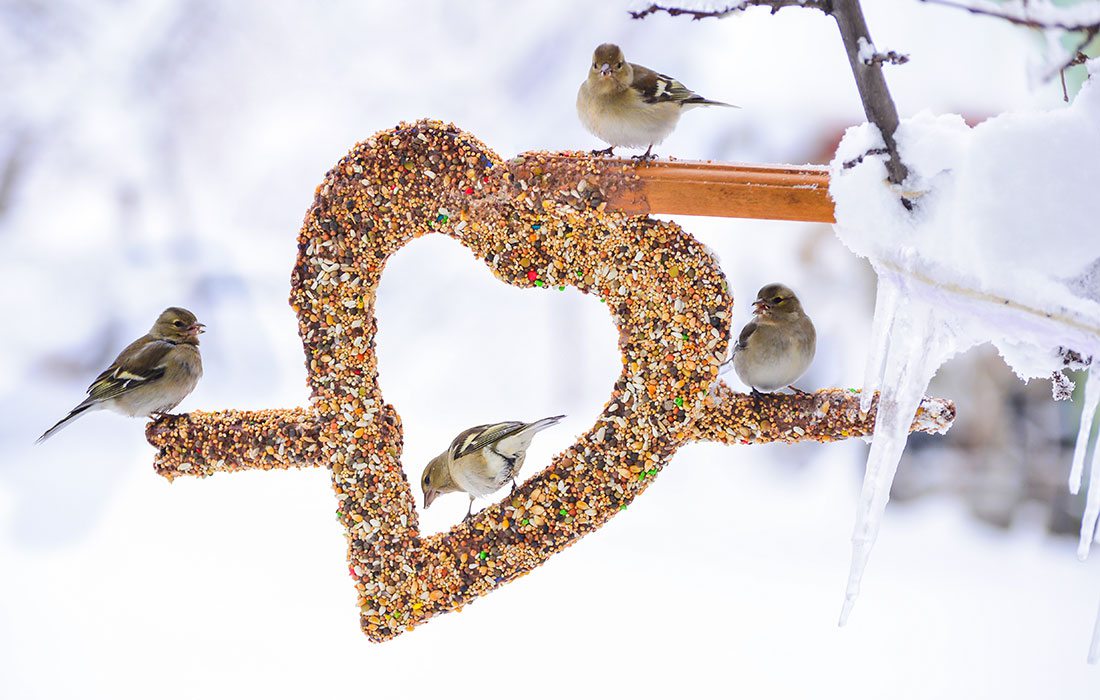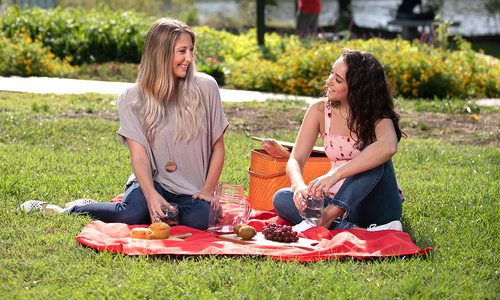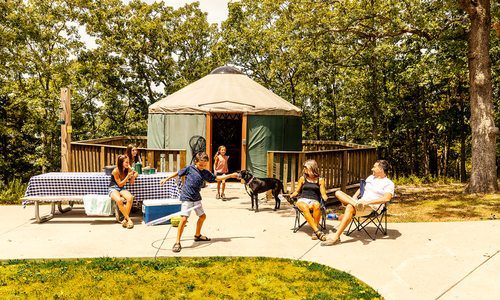
Lifestyle
How to Feed Native Missouri Birds During Winter Months
Incorporate natural beauty into your backyard through feeding, sheltering and watering our native birds. We asked local experts about the difference between feeding the birds in the winter versus the summer, and they had a lot to share.
By Meg Alexander
Nov 2018

When winter is in full swing, your mind is filled with holiday to-do lists, snow day plans and not much else, but don’t forget your feathered friends as temperatures start to drop. According to Jessica Kindall, sales manager at Wild Birds Unlimited and wildlife conservationist, our bird friends need you in the winter more than ever. Kindall says some native Missouri birds are often left without food or water in the cold winter months. In fact, Kindall explains that, depending on the season, birds have very distinct reasons they are searching for food. “In the wintertime, birds are more focused on feeding and surviving,” she says. “In the summertime and the springtime, they focus on feeding to create beautiful bright plumage to attract a mate.”
More and more people are joining the movement to draw nature to their backyards and neighborhoods, Kindall included. “I came from a family who never fed the birds, and then I just started to love it, and now it is such a fun and easy hobby, and it’s very easy to enter into,” Kindall says. According to Kindall, the bird feeding demographic in Springfield is getting younger and younger, and people are starting to see the advantages and patience that comes with the bird-feeding hobby. That is why we’ve gathered some tips to help you help the birds this winter:
What to Feed the Birds
In the wintertime, focus on more diverse foods. Kindall suggests birdfeed that includes lots of fats, proteins and even carbohydrates. Birds, just like us humans, need different nutrients whenever they are under duress. According to Kindall, feeders should focus on fatty, nutrient-rich feed to keep our bird-friends strong and healthy in the cold winter season. Some suggestions include: suet, unsalted peanuts and black oil sunflower seeds.
Don't Forget the Water
Don’t forget—birds need water! Kindall explains that, more than anything, what birds need in the winter is a good water supply. Often in the cooler months bird feeders turn their bird baths upside down or bring them inside without realizing the ponds freeze up and there are fewer puddles for birds to drink from. Although it might cost you more upfront, filling up a bird feeder with tap water is relatively cheap and is a great way to start attracting beautiful birds directly to your backyard. According to Kindall, Wild Birds Unlimited also sells thermostatically controlled bird baths if you want to ensure your water won’t freeze and our bird friends are happily drinking.
Be Pest-Free
Starlings and grackles, otherwise known as blackbirds, are pesky little creatures that will come in big groups and hog all the feeders, preventing the colorful native Missouri birds from getting the food they need. According to Kindall, one of the best ways to prevent these tricky creatures from ruining your new hobby is putting safflower in your bird feeder. Similar to a sunflower seed, safflower seeds have a very hard shell, making it difficult for blackbirds to crack them. Native Missouri birds, like the Chickadee, have very strong beaks to crack the shell and get to the nutrients they need.
Get the Supplies
Wild Birds Unlimited
3849 S. Campbell Ave.
417-882-8801
Petsway
2920 E. Sunshine St.
417-881-8738
All Pet Supplies and Equine Center
1611 W. Republic Road
417-877-4711












